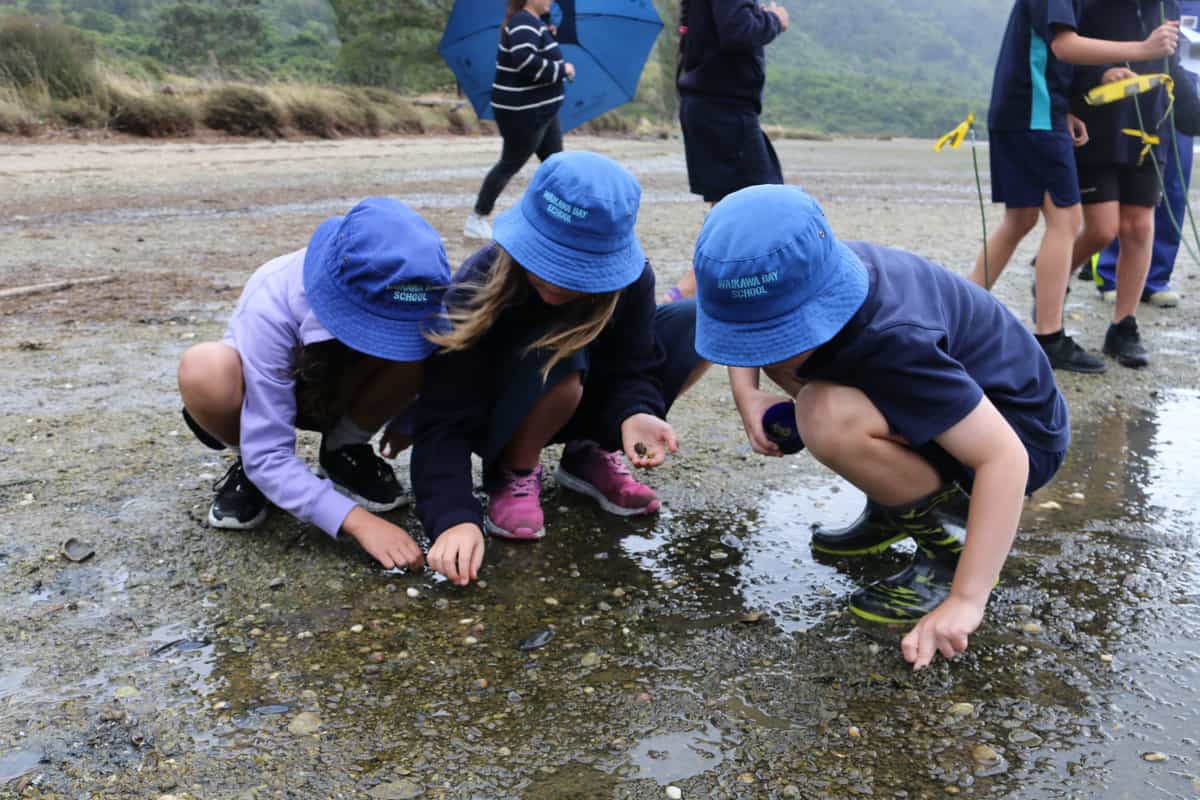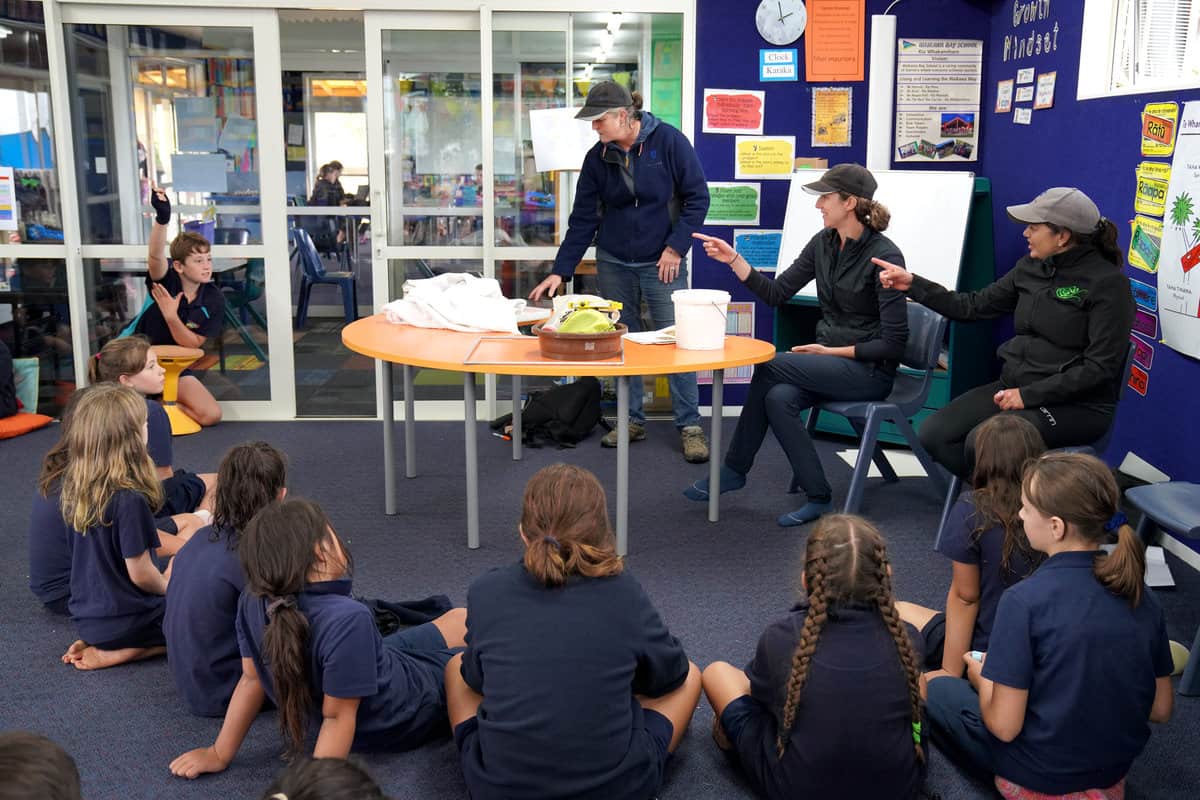Cawthron researchers host Waikawa Bay School estuary education lesson at Shakespeare Bay
10 March 2021
Researchers at Nelson’s Cawthron Institute joined Picton’s Waikawa Bay School to brave the elements and explore Shakespeare Bay’s estuary to learn about the animals and plants that live there.
In wet and windy conditions, the children were guided by Cawthron researchers and their teachers as they scoured the estuary looking for a variety of animals, birds and plants that are indicators of estuary health.
The trip was organised by Port Marlborough as part of their week long programme of activities in celebration of Sea Week, a national event that aims to encourage New Zealanders to take time to connect with and learn about the sea.
Cawthron marine ecologist Dr Robyn Dunmore said Cawthron researchers regularly undertake these kinds of community education activities in line with the organisation’s philanthropic focus.
“We were so pleased to be invited by Port Marlborough to head East and join the Waikawa Bay Primary School whanau for a fun day our learning about all the cool creatures and plants that live in Shakespeare Bay,” Dunmore said.
“Cawthron Institute has a community focus, and as such we dedicate a lot of resource to working with communities in Te Tau Ihu (the Top of the South) to provide science learning opportunities and support the preservation of the natural environment.”
In addition to learning about the scientific names of the species they found and their roles in the ecosystem, Kairangahau Taiao (Environmental Scientist) Aneika Young talked to the students about the significance of these species to local Iwi, including their importance as sources of kaimoana or as tohu (indicator species).
“As a Māori researcher I love having the opportunity to weave mātauranga Māori (Māori knowledge) into our science communications, and particularly with tamariki who respond so well to the pūrakau (stories) that are designed to communicate some complex ideas in fun and digestable ways,” Young said.
“Because protecting our estuaries relies upon people taking positive actions, education is really important, particularly with tamariki and rangatahi.”
Young said she would encourage any community groups or schools that are interested in science education opportunities for their school to get in touch via Cawthron’s website.
“Please reach out to us to find out more about upcoming events and activities you can get involved in.”

